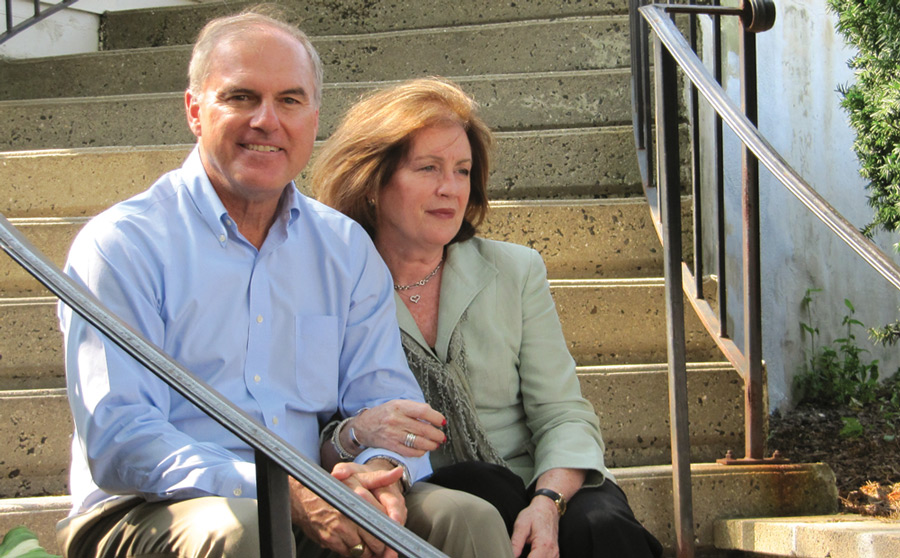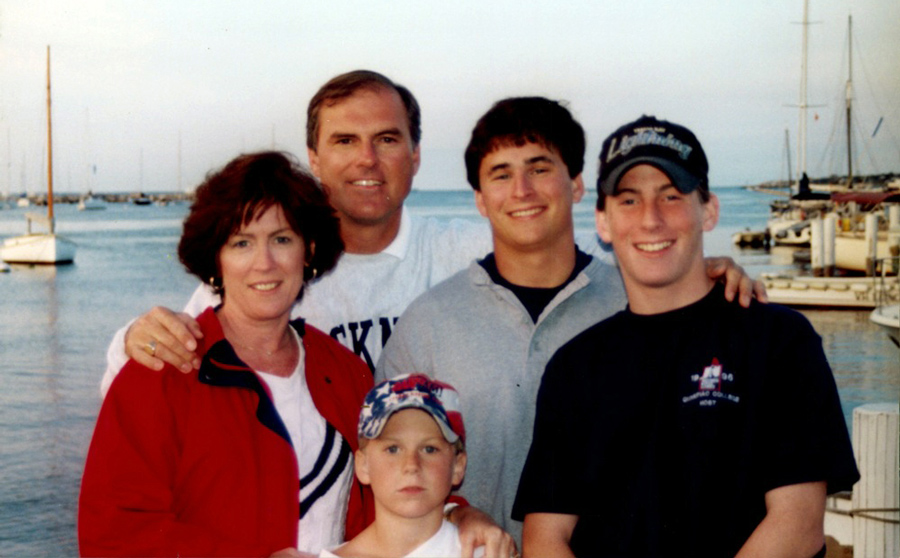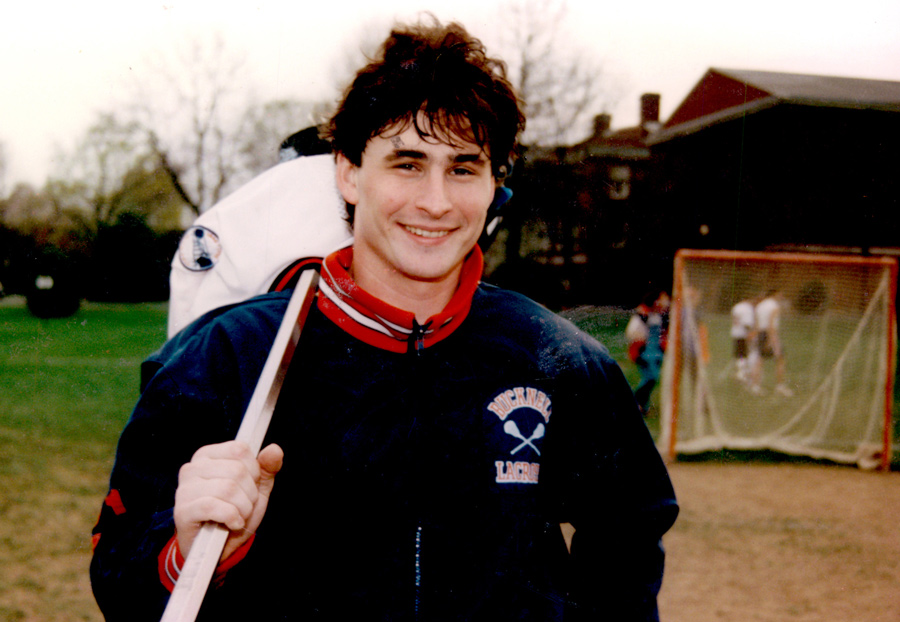

Embodying Resilience
efore he died on 9/11, Brad Fetchet ’99 kept a journal. Its front page showcases a quote from the German poet Goethe: “You can tell the character of a man by what he does for the man who can offer him nothing.”
To honor his memory and that of the nearly 3,000 people who were killed that day, Fetchet’s parents, Mary and Frank, founded the Voices Center for Resilience, formerly known as Voices of September 11th (VOICES). For the last 20 years, the Voices Center and its staff of 10 have provided over 180,000 hours of social-service support for victims’ families, first responders and survivors through counseling, workshops, webinars, trainings and annual symposia. They also share their expertise with communities affected by other mass-casualty tragedies in the U.S. and abroad.
“I didn’t want another mother to lose a child in a terrorist attack,” says Mary, the center’s executive director. “If you’ve been directly affected, unless you take steps and use your voice to influence people to do the right thing, it can and will happen again. Even as we approach the 20th anniversary, we’re still contacted by individuals seeking assistance for the first time. Our work is more important than ever.”


MANY STILL LOST
Mary joined 11 other families to champion the establishment of the 9/11 Commission that led to sweeping intelligence- agency reforms. “The more information we found, the more it was apparent that systemic government failures contributed to the 9/11 attacks. I was shocked there was so much complacency,” she says.
She also served on the advisory board that helped create the 9/11 Memorial & Museum. VOICES later worked with families of 1,600 victims for five years to create one of the museum’s core components — the VOICES 9/11 Living Memorial Project. This online archive contains over 87,000 photographs and mementos of those who died (which includes the six people and an unborn child who died in the 1993 World Trade Center bombing).


ONLINE MEMORIAL PLANNED
“We shepherd people in a fairly intimate way as they come forward,” says Frank, a former IBM executive who is the center’s vice president of strategy and operations. “We build trusting relationships. We are one of them. We are part of them.”
Resilience — what Frank defines as “the ability to bounce back” — is essential to surviving trauma. “One key message is, life is going to challenge us. We try to control what we can control, and surprises come. You can decide how you’re going to take those on. People who are committed to change can make a difference,” he says.
A CALL TO MOM
Brad’s brothers Wes ’04 and Chris ’11 attended Bucknell and, like their older brother, majored in economics and played lacrosse. At Bucknell, Brad was vice president of Kappa Delta Rho and tutored elementary school students.
The center has had more than 200 interns, including 20 from Bucknell. “It’s been rewarding to see how touching the lives of those we serve has influenced them. Many have chosen careers where they give back,” says Frank. Some now work for international charities, in the State Department or as immigration lawyers.
Paige Freyre ’21 is grateful for the internship. “It was powerful to see the Fetchets improve the lives of so many people,” she says. “The center has inspired me to pursue my dream of a career that creates a similar positive social impact.”
“The Fetchets are something else,” adds former intern Margot Tucker ’19. “They embody the word ‘resilience.’ I count myself very lucky to know them.”
go.bucknell.edu/VoicesTipSheets
